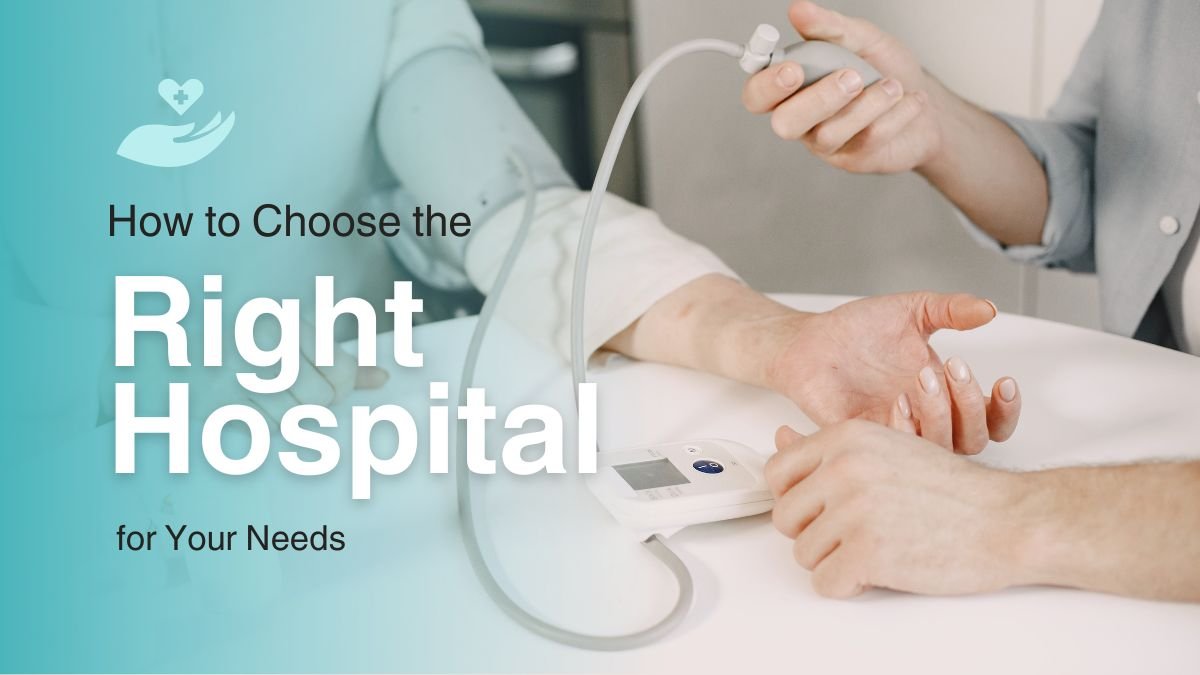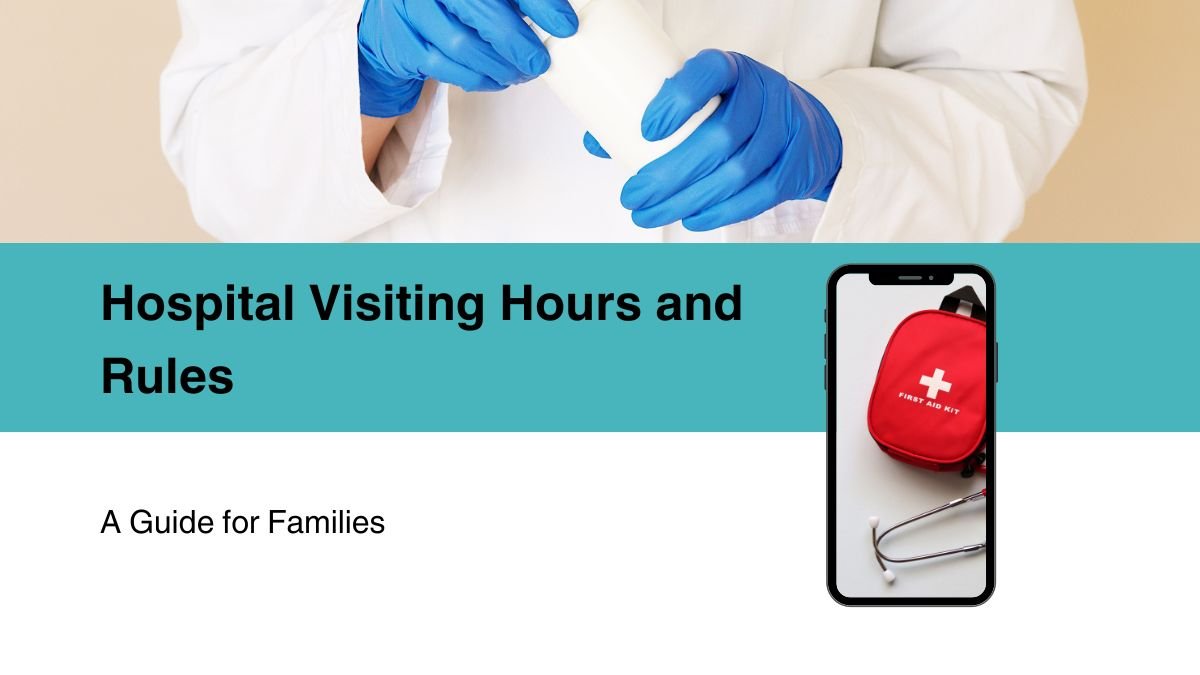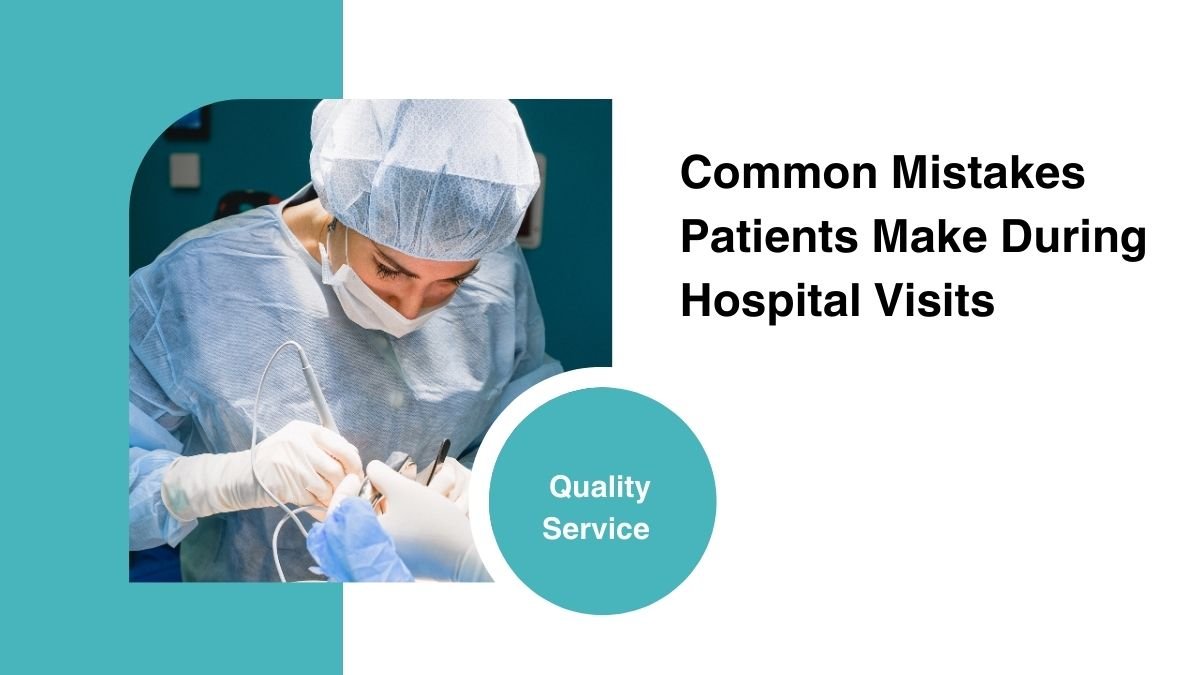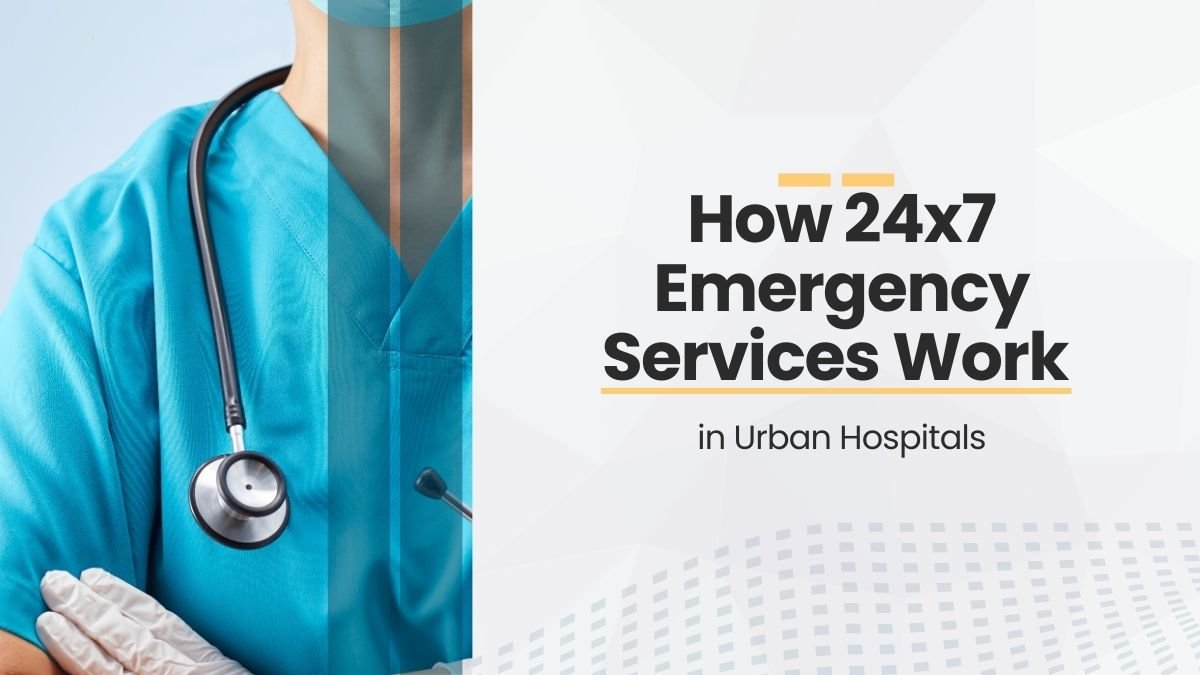When we or someone close to us needs a hospital, we often hastily choose any nearby hospital. But have you ever thought how much the choice of hospital affects our health and the success of treatment? Choosing the right hospital is as important as choosing the right doctor or the right medicine.
People often say, “Hospital is just a place to get treatment, what difference does it make?” But the reality is that the facilities, qualifications of doctors, technology, cost, and patient experience of every hospital are different. If we choose a hospital without information, the treatment may remain incomplete or may cost more than necessary. Therefore, it is wise to gather information in advance and take a well-thought-out decision.
Let us understand in detail what things should be kept in mind to choose the right hospital.
1. Understand your needs
First of all, you have to decide what kind of medical services you need.
Identify the disease
For example, if someone has a heart problem, they should choose a hospital that has a full cardiology facility. Similarly, if someone has cancer, a cancer specialty hospital would be the right choice.
Emergency vs. Planned Treatment
In an emergency, the nearest and safest hospital is the best choice, as time is very precious. For example, in the case of an accident or a heart attack, you cannot risk looking for a hospital far away.
On the other hand, if the treatment is planned in advance – such as a knee replacement, delivery or a major surgery – you have time to research and compare different hospitals.
2. Check the credibility and accreditation of the hospital
Accreditation
It is important to check whether the hospital is approved by a recognized health body. For example, hospitals with NABH (National Accreditation Board for Hospitals) or JCI (Joint Commission International) accreditation often follow better standards. This means that special attention is paid to the quality of treatment and patient safety.
Qualification of doctors and medical staff
It is equally important to know the degree, experience and expertise of the doctors of the hospital. Suppose you have to undergo neurosurgery, then it is important to know whether there are experienced neurosurgeons there or not.
Also, the nursing staff and support team should also be trained, because good nurses and support staff make the treatment easy and safe.
3. Check the services and technology
Variety of services
A good hospital is one that provides all the necessary departments and services under one roof. Such as emergency service, ICU, diagnostic lab, radiology, operation theatre, and separate departments for special diseases.
This saves the patient from the trouble of going to different places again and again.
Modern technology and equipment
Modern technology is very important in today’s time. Techniques like MRI machine, CT scan, robotic surgery or laproscopy make the treatment more safe and easy.
For example, if someone needs to undergo surgery to remove a tumor, modern equipment will make the operation more successful and less painful.
4. Understand expenses and insurance
Insurance coverage
While choosing a hospital, you should check whether it is covered in your health insurance plan or not. If the hospital has a tie-up with your insurance provider, the hassle of billing is greatly reduced and you do not have to pay more money out of pocket.
Transparency of expenses
Many a times it happens that before starting the treatment, an expense is told and later the patient gets upset after seeing the bill. Therefore, it is better if the hospital clearly tells in advance how much the treatment will cost and what additional charges can be there.
For example, someone needs to undergo an appendix operation. It is better to know the separate expenses of the operation, medicines, room, and tests in writing.
5. Check patient experience and hospital image
Reputation and reviews
Reading patient reviews on the internet, checking the hospital website or taking opinions from people around is very helpful. This shows how the reputation of the hospital is and how the patients have experienced it.
Care and comfort
Only doctors and medicines are not enough, but the comfort and mental peace of the patient is equally important. A good hospital is one where the staff talks to the patient well, takes care of cleanliness and there are complete arrangements for safety.
For example, a woman who is going to deliver needs emotional support not only from the doctor but also from the nurses and support staff.
6. Pay attention to practical aspects
Location and access
The distance and accessibility of the hospital is also important. If the hospital is very far from your home and there is a lot of traffic, then it can be a problem at the time of emergency.
On the other hand, having a hospital nearby is more convenient for regular treatment or checkup.
Facilities and arrangements
Also see what facilities are available around or inside the hospital – like a medicine shop, cafeteria, ambulance service or parking. These small things prove to be a big relief for the patient and the family.
Visit the hospital
If you have time, go to the hospital and get an idea of the cleanliness, behavior of the staff and the atmosphere there. Sometimes direct experience is more reliable than books and the Internet.
Conclusion
Choosing the right hospital is not an easy decision, but if we take steps thoughtfully, then the experience of treatment can be very good. This may be a good option.
- Identify your disease and needs.
- Check the hospital’s accreditation, doctors’ qualifications and technology.
- Get information about costs and insurance in advance.
- Know the patients’ experience and the hospital’s image.
- Pay attention to distance, facilities and practical aspects.
Remember, a hospital is not just a place for treatment, but also a place of trust and security. The right hospital is one where you and your family get respect, correct information and a safe environment.









